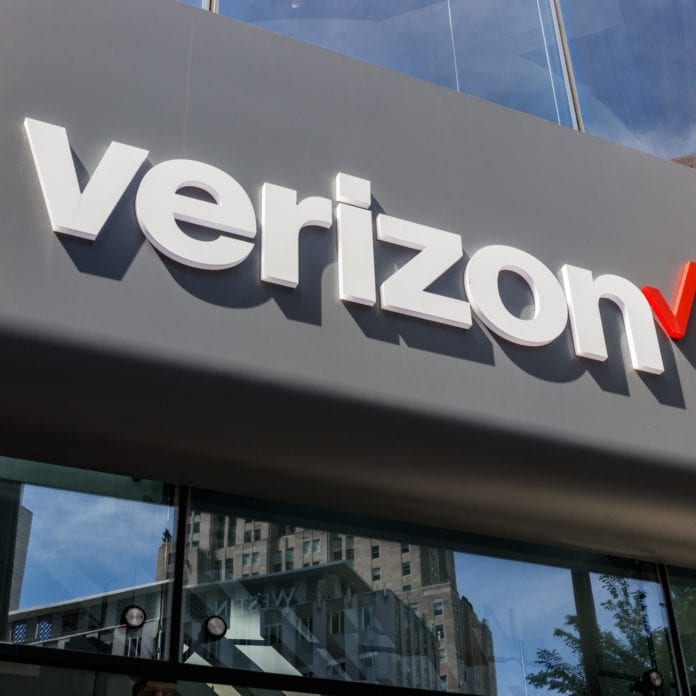Verizon won spectrum worth $45.45 billion in the C Band auction, to build itself a nationwide footprint of midband airwaves for 5G. That sum is nearly double the amount spent by the second-highest bidder, AT&T.
Forty-five billion dollars is as much as the state of New Jersey’s proposed budget for the coming year. As much as the entire U.S. transportation sector received in the last coronavirus relief bill. More than the entire annual GDP of countries like Cameroon, Tunisia or Paraguay. More than five times the amount that Verizon spent on Yahoo and AOL combined.
The C Band auction raised a gross total of $81.17 billion, smashing the previous auction record of $44 billion raised in the AWS-3 auction that ran in 2014-2015 and raised nearly $45 billion. Verizon, by itself, spent more on C Band spectrum than the AWS-3 auction raised from all bidders.
Verizon won 3,511 licenses in all of the 406 geographic Partial Economic Areas that make up the United States.
The top bidders in terms of dollar amounts were:
-Verizon: $45.455 billion for 3,511 licenses in 406 PEAs
-AT&T: $23.407 billion for 1,621 licenses in 406 PEAs
-T-Mobile US: $9.336 billion for 142 licenses in 72 PEAs
-US Cellular: $1.283 billion for 252 licenses in 99 PEAs
Subscribe now to get the daily newsletter from RCR Wireless News
-Private-equity-backed NewLevel II, associated with David Grain, a former AT&T executive has advocated for broadband expansion: $1.277 billion for 10 licenses in 10 PEAs
While the C Band had a field of 57 qualified bidders, fewer than half of those — just 21 bidders — walked away with all of the available 5,684 licenses. (Among the qualified bidders who won no licenses were Cox Communications and hotel chain Starwood Holdings, which had won licenses in the CBRS PALs auction.) A complete list of the winning and non-winning bidders is available from the FCC here; information about payment totals and schedules are available here.
The winning bidders must pay 20% of their winning bid totals by March 10; that means Verizon has to pay nearly $9.1 billion and AT&T, nearly $4.7 billion in their first post-auction payments. Final payments are due in full by March 24.
Verizon has made arrangements to borrow up to $25 billion to fund its spectrum purchases, according to a SEC filing made yesterday. AT&T and T-Mobile US are also borrowing to fund their C-Band purchases, with T-Mo recently borrowing $3 billion, and AT&T looking at $14 billion in borrowing, according to Bloomberg News reports.
“This auction reflects a shift in our nation’s approach to 5G toward mid-band spectrum that can support fast, reliable, and ubiquitous service that is competitive with our global peers,” said FCC Acting Chairwoman Jessica Rosenworcel in a statement on the release of the auction results. “Now we have to work fast to put this spectrum to use in service of the American
people.”
The first tranche of C Band spectrum is slated to be cleared and available to operators by December of this year, with a second tranche coming in December 2023.
In a sign that work on C Band network equipment is continuing that will support carriers’ spectrum purchases, the FCC this week extended permission for Ericsson to use 3.7-3.9 GHz at its Richardson, Texas lab, at its corporate campus in Plano, Texas and at its 5G equipment factory in Lewisville, Texas, for testing related to C-band equipment development, including expanding 5G testing in C Band spectrum. The equipment vendor has previously demonstrated 5.4 Gbps throughputs on the C Band network at its headquarters.
“These record-breaking results highlight the demand and critical need for more licensed mid-band spectrum and demonstrate the importance of developing a robust spectrum auction pipeline,” said CTIA President and CEO Meredith Attwell Baker, in a statement. “They also underscore the commitment by stakeholders across the wireless industry to invest in innovation, drive our economic recovery and ensure that the U.S. leads the 5G economy.”

